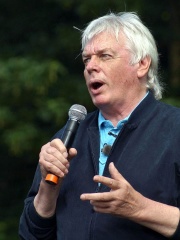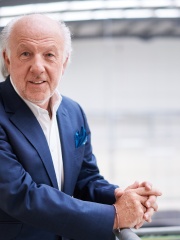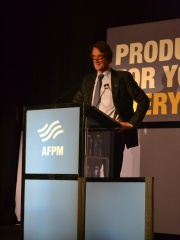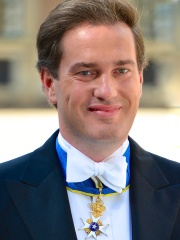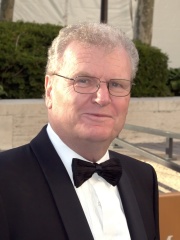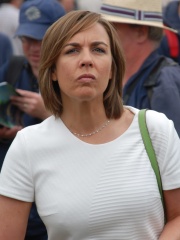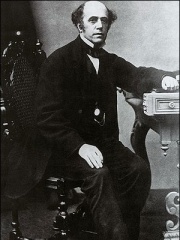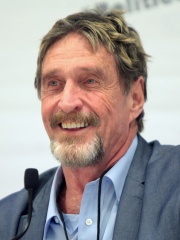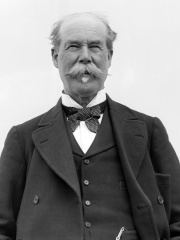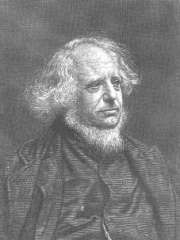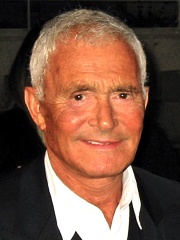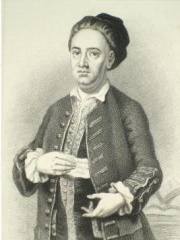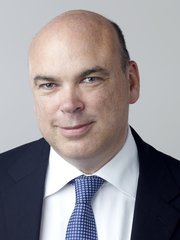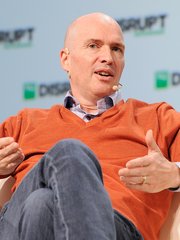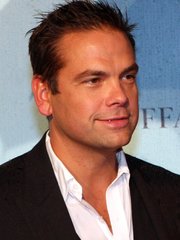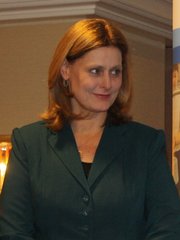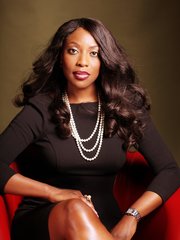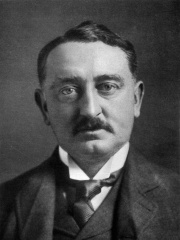
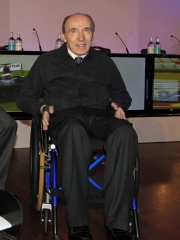

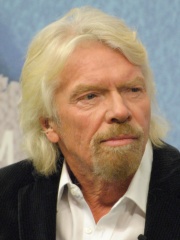
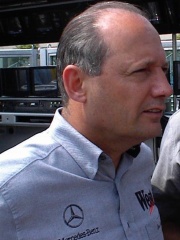
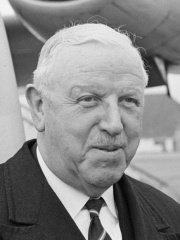
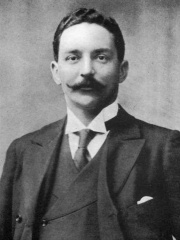
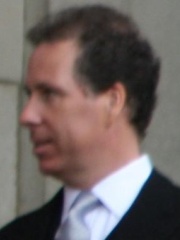
The Most Famous
BUSINESSPEOPLE from United Kingdom
This page contains a list of the greatest British Businesspeople. The pantheon dataset contains 847 Businesspeople, 77 of which were born in United Kingdom. This makes United Kingdom the birth place of the 2nd most number of Businesspeople.
Top 10
The following people are considered by Pantheon to be the top 10 most legendary British Businesspeople of all time. This list of famous British Businesspeople is sorted by HPI (Historical Popularity Index), a metric that aggregates information on a biography's online popularity. Visit the rankings page to view the entire list of British Businesspeople.

1. Cecil Rhodes (1853 - 1902)
With an HPI of 82.74, Cecil Rhodes is the most famous British Businessperson. His biography has been translated into 84 different languages on wikipedia.
Cecil John Rhodes ( SES-əl ROHDZ; 5 July 1853 – 26 March 1902) was a British mining magnate and politician in southern Africa who served as Prime Minister of the Cape Colony from 1890 to 1896. He and his British South Africa Company founded the southern African territory of Rhodesia (now Zimbabwe and Zambia), which the company named after him in 1895. He also devoted much effort to realising his vision of a Cape to Cairo Railway through British territory. Rhodes set up the Rhodes Scholarship, which is funded by his estate. The son of a vicar, Rhodes was born in Netteswell House, Bishop's Stortford, Hertfordshire. Due to his ill-health, at age sixteen he was sent to South Africa by his family in the hopes the climate might improve his health. At eighteen, he entered the diamond trade at Kimberley in 1871 and with funding from Rothschild & Co, began to systematically buy out and consolidate diamond mines. Over the next two decades, he gained a near-complete monopoly of the world diamond market. In 1888, he founded the diamond company De Beers, which retains its prominence into the 21st century. Rhodes entered the Cape Parliament at the age of 27 in 1881, and in 1890, he became prime minister. As prime minister, he expropriated land from black Africans with the Glen Grey Act, while also tripling the wealth requirement for voting under the Franchise and Ballot Act, effectively barring black people from taking part in elections. After overseeing the formation of Rhodesia during the early 1890s, he was forced to resign in 1896 after the disastrous Jameson Raid, an unauthorised attack on Paul Kruger's South African Republic (or Transvaal). His career never recovered, and after years of ill health and cardiovascular issues, he died in 1902. At his request he was buried at Malindidzimu in what is now Zimbabwe. In his last will, he provided for the establishment of the international Rhodes Scholarship at University of Oxford, the oldest graduate scholarship in the world. With the rise of international anti-racist movements like Rhodes Must Fall, Rhodes's legacy is a matter of debate. Critics cite his confiscation of land from the black indigenous population of the Cape Colony, and his promotion of false claims that southern African archeological sites such as Great Zimbabwe were built by European civilisations.

2. Frank Williams (1942 - 2021)
With an HPI of 74.52, Frank Williams is the 2nd most famous British Businessperson. His biography has been translated into 35 different languages.
Sir Francis Owen Garbett Williams (16 April 1942 – 28 November 2021) was a British businessman, motorsport executive and racing driver. From 1977 to 2020, Williams served as co-founder, team principal and co-owner of Williams in Formula One, winning nine World Constructors' Championship titles between 1980 and 1997.

3. Andrew Carnegie (1835 - 1919)
With an HPI of 73.41, Andrew Carnegie is the 3rd most famous British Businessperson. His biography has been translated into 75 different languages.
Andrew Carnegie (November 25, 1835 – August 11, 1919) was a Scottish-American industrialist and philanthropist. Carnegie led the expansion of the American steel industry in the late-19th century and became one of the richest Americans in history. He became a leading philanthropist in the United States, Great Britain, and the British Empire. During the last 18 years of his life, he gave away around $350 million (equivalent to $6.9 billion in 2025 dollars), almost 90 percent of his fortune, to charities, foundations and universities. His 1889 article proclaiming "The Gospel of Wealth" called on the rich to use their wealth to improve society, expressed support for progressive taxation and an estate tax, and stimulated a wave of philanthropy. Carnegie was born in Dunfermline, Scotland. He immigrated to what is now Pittsburgh, Pennsylvania, with his parents in 1848 at the age of 12. Carnegie started work in a cotton mill and later as a telegrapher. By the 1860s he had investments in railroads, railroad sleeping cars, bridges, and oil derricks. He accumulated further wealth as a bond salesman, raising money for American enterprise in Europe. He built Pittsburgh's Carnegie Steel Company, which he sold to J. P. Morgan in 1901 for $303,450,000; it formed the basis of the U.S. Steel Corporation. After selling Carnegie Steel, he surpassed John D. Rockefeller as the richest American of the time. Carnegie devoted the remainder of his life to large-scale philanthropy, with special emphasis on building local libraries, working for world peace, education, and scientific research. He funded Carnegie Hall in New York City, the Peace Palace in The Hague, founded the Carnegie Corporation of New York, Carnegie Endowment for International Peace, Carnegie Institution for Science, Carnegie Trust for the Universities of Scotland, Carnegie Hero Fund, Carnegie Mellon University, and the Carnegie Museums of Pittsburgh, among others.

4. Richard Branson (b. 1950)
With an HPI of 71.22, Richard Branson is the 4th most famous British Businessperson. His biography has been translated into 67 different languages.
Sir Richard Charles Nicholas Branson (born 18 July 1950) is an English business magnate who co-founded the Virgin Group in 1970, and, as of 2016, controlled five companies. Branson expressed his desire to become an entrepreneur at a young age. His first business venture, at the age of 16, was a magazine called Student. In 1970, he set up a mail-order record business. He opened a chain of record stores, Virgin Records—later known as Virgin Megastores—in 1972. His Virgin brand grew rapidly during the 1980s, as he started the Virgin Atlantic airline and expanded the Virgin Records music label. In 1997 he founded the Virgin Rail Group to bid for passenger rail franchises during the privatisation of British Rail. The Virgin Trains brand operated the InterCity West Coast franchise from 1997 to 2019, the InterCity CrossCountry franchise from 1997 to 2007 and the InterCity East Coast franchise from 2015 to 2018. In 2004, he founded the space tourism company Virgin Galactic, based at Mojave Air and Space Port in California, United States, noted for the SpaceShipTwo suborbital spaceplane. In March 2000, Branson was knighted for "services to entrepreneurship". Due to his work in retail, music and transport, his taste for adventure and for his humanitarian work, he has become a prominent global figure. In 2007 he was named one of the 100 Most Influential People in the World by Time magazine. In June 2023, Forbes magazine listed Branson's estimated net worth at US$3 billion.
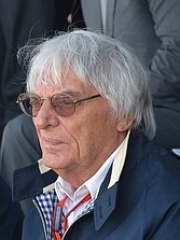
5. Bernie Ecclestone (b. 1930)
With an HPI of 70.86, Bernie Ecclestone is the 5th most famous British Businessperson. His biography has been translated into 43 different languages.
Bernard Charles Ecclestone (born 28 October 1930) is a British business magnate, motorsport executive and former racing driver. Widely known in journalism as the "F1 Supremo", Ecclestone founded the Formula One Group in 1987, controlling the commercial rights to Formula One until 2017. Born in Suffolk and raised in Bexleyheath, Ecclestone began his business career trading motorcycle parts after World War II. He started racing in Formula Three in 1949, winning multiple races at Brands Hatch driving a Cooper Mk V. After purchasing two Connaught chassis in 1958, Ecclestone entered the Monaco and British Grands Prix in Formula One as a privateer, but did not qualify at either. He then became a driver manager for Stuart Lewis-Evans and Jochen Rindt, the latter winning the World Drivers' Championship posthumously in 1970. Ecclestone purchased Brabham in 1972—which he operated for 15 years—leading the team to 22 victories, as well as two World Drivers' Championship titles with Nelson Piquet. He co-founded the Formula One Constructors' Association two years later, leading them through the FISA–FOCA war. Ecclestone's control of the sport, which grew from his pioneering sale of television rights in the late-1970s, was primarily financial; under the terms of the Concorde Agreement in 1987, Ecclestone and his companies also controlled the administration, setup and logistics of each Formula One Grand Prix. He also founded International Sportsworld Communicators in 1996, controlling the commercial rights to the World Rally Championship until 2000. He placed fifth on the Sunday Times Rich List in 2002, and declined both a CBE and a knighthood from Elizabeth II. He co-owned association football club Queens Park Rangers with Flavio Briatore from 2007 to 2011, overseeing their promotion to the Premier League. He sold the Formula One Group to Liberty Media in 2017, subsequently being appointed as chairman emeritus and adviser to the board of directors until his departure in 2020. Over his four-decade career as an executive in Formula One, Ecclestone was involved in several controversies. With the birth of his son in 2020, he became one of the oldest known fathers, aged 89. In October 2023, he was convicted of tax fraud at Southwark Crown Court, and agreed to pay HM Revenue and Customs over £650 million in back taxes and penalties; he was sentenced to 17 months in prison, suspended for two years.

6. Ron Dennis (b. 1947)
With an HPI of 70.74, Ron Dennis is the 6th most famous British Businessperson. His biography has been translated into 30 different languages.
Sir Ronald Dennis (born 1 June 1947) is a British businessman and motorsport executive. From 1981 to 2009, Dennis served as team principal, CEO and co-owner of McLaren in Formula One, winning seven World Constructors' Championship titles between 1984 and 1998; he also served as founder, chairman and owner of McLaren Group between 1985 and 2017, where he founded McLaren Automotive in 2010. Dennis started his career as a mechanic, before starting successful junior formulae teams Rondel Racing and then Project Four Racing, which took over the management of the McLaren team in 1980. Between 1981 and 2009, Dennis was the team principal of the McLaren Formula One team, and was instrumental in transforming the outfit into a regular world championship contender. Constructors' and drivers' world championships were won with Niki Lauda, Alain Prost, Ayrton Senna, Mika Häkkinen and Lewis Hamilton. Dennis founded McLaren Cars—later known as McLaren Automotive—in 1985, producing flagship supercars such as the F1 (1992), SLR (2003, in collaboration with Mercedes-Benz) and P1 (2013). Aside from McLaren Group, he is also one of six British business persons to be an official British Business Ambassador for advanced engineering and manufacturing. Dennis is also a main trustee for Tommy's, a miscarriage help charity. He is the Global Consultant for the state-owned China Minsheng Investment Group, the chairman for the UK Summit, and also former owner of Absolute Taste. With interests in foreign trade, Dennis also became Chairman of the British East Asian Council in 2014. Before the merger with LVMH, Dennis was a major shareholder in the luxury watch maker TAG Heuer, along with his business partner, Mansour Ojjeh.

7. Stanley Rous (1895 - 1986)
With an HPI of 70.19, Stanley Rous is the 7th most famous British Businessperson. His biography has been translated into 44 different languages.
Sir Stanley Ford Rous (25 April 1895 – 18 July 1986) was an English football referee and the 6th president of FIFA, serving from 1961 to 1974. He also served as secretary of the Football Association from 1934 to 1962 and was an international referee.

8. J. Bruce Ismay (1862 - 1937)
With an HPI of 68.63, J. Bruce Ismay is the 8th most famous British Businessperson. His biography has been translated into 33 different languages.
Joseph Bruce Ismay (; known as Bruce 12 December 1862 – 17 October 1937) was an English businessman who was the chairman and managing director of the White Star Line. He was the highest-ranking White Star official to survive the 1912 sinking of the company's flagship RMS Titanic.

9. David Armstrong-Jones, 2nd Earl of Snowdon (b. 1961)
With an HPI of 68.60, David Armstrong-Jones, 2nd Earl of Snowdon is the 9th most famous British Businessperson. His biography has been translated into 25 different languages.
David Albert Charles Armstrong-Jones, 2nd Earl of Snowdon (born 3 November 1961), styled as Viscount Linley until 2017 and known professionally as David Linley, is a member of the British royal family, an English furniture maker, and honorary chairman of the auction house Christie's. He is the only son of Antony Armstrong-Jones, 1st Earl of Snowdon and Princess Margaret, and through his mother a grandson of King George VI and first cousin of King Charles III. When he was born, he was 5th in the line of succession to the British throne; as of 2025, he is 26th, and the highest who is not a descendant of Queen Elizabeth II, his aunt.
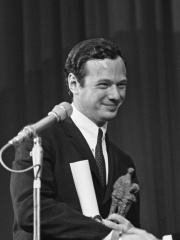
10. Brian Epstein (1934 - 1967)
With an HPI of 68.57, Brian Epstein is the 10th most famous British Businessperson. His biography has been translated into 46 different languages.
Brian Samuel Epstein ( EP-styne; 19 September 1934 – 27 August 1967) was an English music entrepreneur who managed the Beatles from 1961 until his death in 1967. Epstein was born into a family of successful retailers in Liverpool, who put him in charge of their music shop, where he displayed a gift for talent-spotting. He first met the Beatles in 1961 at a lunchtime concert at Liverpool's Cavern Club. Although he had no experience of artist management, Epstein put them under contract and insisted that they abandon their scruffy image in favour of a new clean-cut style. He also attempted to get the Beatles a recording contract, eventually securing a deal with EMI's Parlophone label. Within months, the Beatles were international stars. Some of Epstein's other young discoveries had also prospered under his management. They included Gerry and the Pacemakers, Billy J. Kramer and the Dakotas, Tommy Quickly, Cilla Black and The Big Three. In 1967, he died of a combined alcohol and barbiturate overdose, ruled as accidental, at the age of 32.
People
Pantheon has 77 people classified as British businesspeople born between 1636 and 1981. Of these 77, 36 (46.75%) of them are still alive today. The most famous living British businesspeople include Richard Branson, Bernie Ecclestone, and Ron Dennis. The most famous deceased British businesspeople include Cecil Rhodes, Frank Williams, and Andrew Carnegie. As of April 2024, 8 new British businesspeople have been added to Pantheon including Mike Lynch, Ben Horowitz, and Lord Ivar Mountbatten.
Living British Businesspeople
Go to all RankingsRichard Branson
1950 - Present
HPI: 71.22
Bernie Ecclestone
1930 - Present
HPI: 70.86
Ron Dennis
1947 - Present
HPI: 70.74
David Armstrong-Jones, 2nd Earl of Snowdon
1961 - Present
HPI: 68.60
David Icke
1952 - Present
HPI: 63.08
David Richards
1952 - Present
HPI: 60.09
Steve Jackson
1951 - Present
HPI: 59.24
Jim Ratcliffe
1952 - Present
HPI: 58.22
Christopher O'Neill
1974 - Present
HPI: 58.21
Mark Thatcher
1953 - Present
HPI: 57.44
Howard Stringer
1942 - Present
HPI: 55.98
Claire Williams
1976 - Present
HPI: 55.40
Deceased British Businesspeople
Go to all RankingsCecil Rhodes
1853 - 1902
HPI: 82.74
Frank Williams
1942 - 2021
HPI: 74.52
Andrew Carnegie
1835 - 1919
HPI: 73.41
Stanley Rous
1895 - 1986
HPI: 70.19
J. Bruce Ismay
1862 - 1937
HPI: 68.63
Brian Epstein
1934 - 1967
HPI: 68.57
Thomas Cook
1808 - 1892
HPI: 68.03
John McAfee
1945 - 2021
HPI: 66.21
Thomas Lipton
1848 - 1931
HPI: 63.58
Henry Cole
1808 - 1882
HPI: 63.52
Vidal Sassoon
1928 - 2012
HPI: 63.26
Edward Cave
1691 - 1754
HPI: 61.95
Newly Added British Businesspeople (2025)
Go to all RankingsMike Lynch
1965 - 2024
HPI: 53.50
Ben Horowitz
1966 - Present
HPI: 42.45
Lord Ivar Mountbatten
1963 - Present
HPI: 41.39
Lachlan Murdoch
1971 - Present
HPI: 41.38
Sarah Jane Brown
1963 - Present
HPI: 40.50
Kate Scott
1981 - Present
HPI: 39.98
Mo Abudu
1964 - Present
HPI: 36.30
Ola Brown
HPI: 26.93
Overlapping Lives
Which Businesspeople were alive at the same time? This visualization shows the lifespans of the 25 most globally memorable Businesspeople since 1700.

